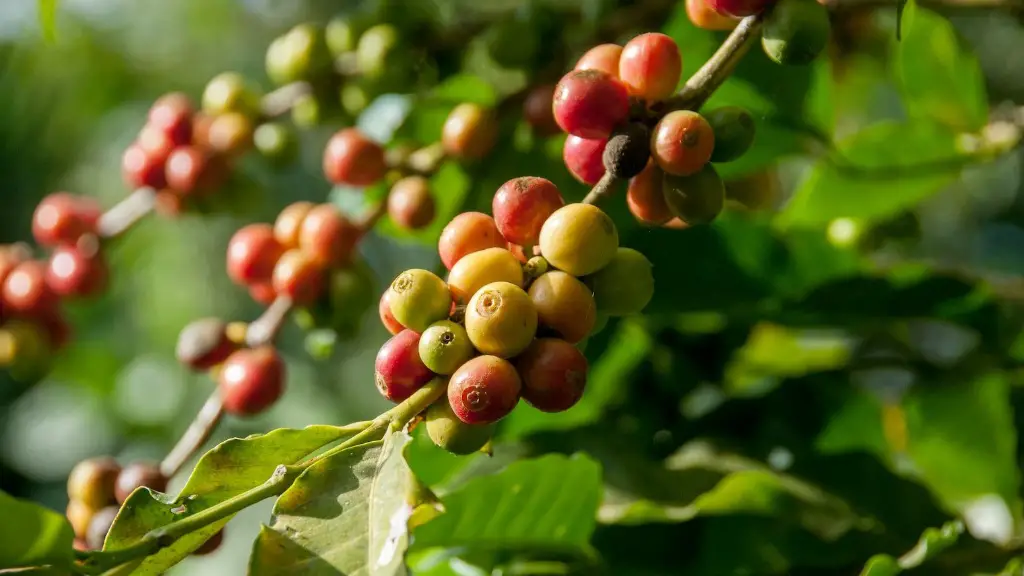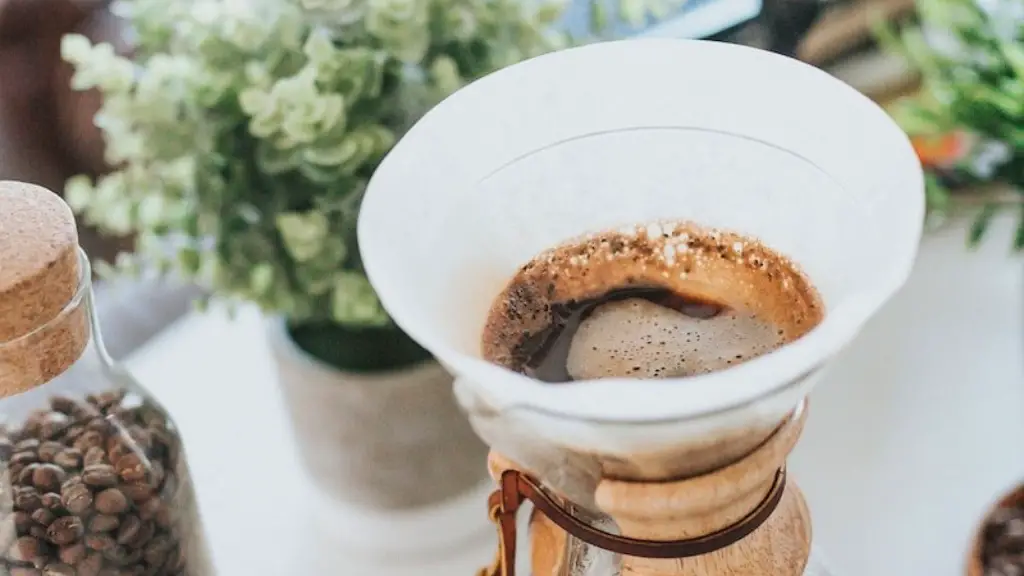Coffee beans are the seeds of the coffee plant, which is native to Africa. The coffee plant is a member of the Rubiaceae family, which includes more than 500 species of flowering plants. The coffee plant is believed to have originated in Ethiopia, and Coffee beans were first exported from Africa to Europe in the 17th century.
Coffee beans are typically roasted before they are used to make coffee. Roasting coffee beans alters the physical and chemical properties of the beans. One of the chemical changes that occurs during roasting is the degradation of chlorogenic acid. Chlorogenic acid is a compound that is found in coffee beans and other plants. This compound is believed to have health-promoting effects, but it is also susceptible to degradation during roasting.
The coffee roasting process also affects the flavor of coffee. Coffee beans roasted at a higher temperature will have a darker color and a more intense flavor. The length of time that the beans are roasted also affects the flavor. The longer the beans are roasted, the more intense the flavor will be.
Yes, coffee beans are fermented. The fermentation process is important to the flavor of coffee.
Is coffee considered a fermented food?
Coffee is a brewed drink prepared from roasted coffee beans, which are the seeds of berries from the Coffea plant. The genus Coffea is native to tropical Africa, and Madagascar, the Comoros, Mauritius, and Réunion in the Indian Ocean. The plant was exported from Africa to countries around the world and coffee plants are now cultivated in over 70 countries, primarily in the equatorial regions of the Americas, Southeast Asia, India, and Africa. The two most commonly grown coffee species worldwide are Coffea canephora (predominantly a form known as ‘robusta’) and Coffea arabica. Once ripe, coffee berries are picked, processed, and dried. Dried coffee seeds (referred to as “beans”) are roasted to varying degrees, depending on the desired flavor. Roasted beans are ground and then brewed with near-boiling water to produce the beverage known as coffee.
Coffee fermentation is a process that is used to remove the mucilage from parchment coffee. The mucilage is a sticky substance that is found on the outside of the coffee bean. The mucilage contains polysaccharides, cellulose, and starch. The mucilage can prolong the time needed to dry the coffee beans and, in some cases, also lead to mould development, which reduces the final quality of the coffee.
How do they ferment coffee beans
The primary method for processing coffee starts with green beans that have already been washed or are natural. They are then soaked in water and inoculated with specific bacteria. After the fermentation process is complete, the beans are then washed and dried to be ready for roasting.
Natural coffees are fermented and dried whole, and fermentation takes place inside each individual bean for up to 30 days (weather permitting). This process imparts a unique flavor to the coffee, and is often considered to produce a more complex and interesting cup than coffee that has been processed using the wet or dry methods.
Is Starbucks Coffee fermented?
Starbucks coffee is not fermented, but the beans are roasted, which gives the coffee its signature flavor. Many people assume that Starbucks coffee is fermented because of its strong flavor, but that is not the case. The beans are roasted at a high temperature, which brings out the natural oils and flavors of the bean.
Post-fermented teas are those that have been allowed to ferment and then have the process stopped and later fermented again. This results in a tea with a dark red hue and a sweet aroma of malt sugar. Black tea is an example of a post-fermented tea.
How do you tell if beans are fermented?
If you’re worried that your beans may have gone bad, taste test one before cooking. You’ll be able to tell if they’re fermented by the vinegary, acidic flavor. If they taste fine, then they’re probably okay to use.
Coffee is a popular beverage around the world, and people have been experimenting with different ways to make it for centuries. Recently, scientists have found a way to ferment coffee grounds into alcohol. This new coffee liquor tastes, smells, and looks like regular coffee, but it is 40% alcohol. Thanks to science, we now have a new way to enjoy coffee!
Which coffee is fermented
Kopi Luwak coffee is a unique type of coffee that is made from beans that have been digested by civets and then excreted. The beans are then collected, washed, and roasted to create a coffee with a unique flavor. This coffee has become famous all over the world for its unique taste.
If you leave coffee sitting in your drip coffee maker for too long, it will start to grow mold and bacteria. This is because coffee is a food source for mold and bacteria, and they will start to grow if the coffee is left out long enough. If you see mold or bacteria growing in your coffee, it’s best to throw it out and start fresh.
What bacteria is in coffee?
Lactic acid bacteria (LAB) are commonly found in coffee processing environments and play an important role in coffee bean fermentation. LAB utilise coffee pulp as a source of carbon and nitrogen to produce lactic acid, which contributes to the development of coffee flavour. LAB are also known to contribute to coffee bean clarifying and coffee storage stability.
All coffee cherries, once harvested, will ferment naturally due to the high sugar content of the pulp. This natural fermentation process is practised by all coffee producers worldwide in order to strip the pulp and remove a sticky mucous layer to get to the coffee bean.
Can you ferment coffee beans into alcohol
While most coffees do not contain alcohol, it is possible for fermented coffees to contain small amounts. This is because the fermentation process can sometimes result in the production of ethanol. However, most coffee producers carefully control the fermentation process in order to avoid the formation of ethanol.
It is important to note that even if beans ferment while soaking, they will still need to be cooked in order to be eaten. The cooking process will eliminate any beneficial enzymes or probiotics that were added to the beans through the fermentation process. This is something to keep in mind when considering whether or not to ferment beans before cooking them.
Can I make kombucha with coffee?
Coffee lovers rejoice! You can now enjoy your favorite beverage with the added benefits of kombucha thanks to this new brewing method. The result is a truly exceptional taste experience that every Kombucha fan should have tried at least once. So go ahead and give it a try, your taste buds will thank you!
Coffee is best stored in an opaque, airtight container at room temperature. Coffee will start to lose its flavor after about a week stored this way.
Is Chick Fil A coffee real coffee
Our coffee is handcrafted each day with a custom blend of cold-brewed coffee and 2% milk. It is sweetened with pure cane sugar and served over ice. Our coffee beans are sourced from THRIVE Farmers, a farmer-direct coffee company that enriches the lives and communities of those who grow it. Our coffee is available all day in Original or Vanilla.
Making the perfect cup of coffee is all about finding the right balance. Too few coffee grounds will result in over-extracted or bitter coffee, while too many grounds will result in under-extracted coffee that does not achieve the full flavor of the blend. The key is to find the right proportions and grind for your specific brewing method.
Warp Up
No, coffee beans are not fermented.
There is some evidence that coffee beans are fermented, but more research is needed to confirm this.





